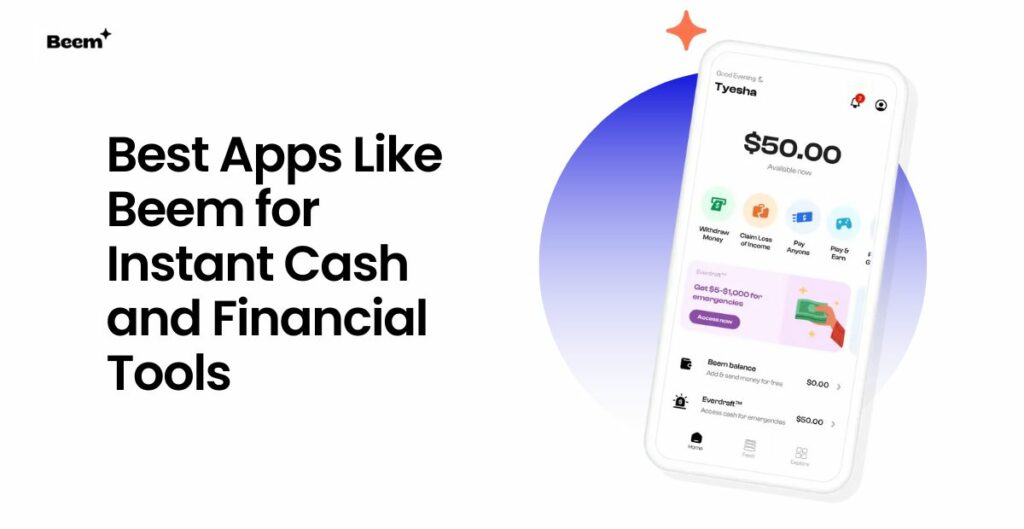Table of Contents
Managing your finances is essential when considering a career shift. A career change comes with many challenges—chief among them is building a financial cushion that supports your goals without adding monetary stress. Whether you’re an administrative assistant feeling stuck or a freelancer seeking stability, thoughtful financial planning can empower your transition.
This blog offers smart money planning tips for managing savings, handling income gaps, and staying financially secure during a career transition.
Why Financial Planning Is Critical During a Career Shift
Financial stability is essential to pursuing new goals with confidence, not fear. A career change means a significant change in income. You may have to readjust your lifestyle according to your present paycheck. You may have to cut expenses drastically if your salary is lower than your last pay. Many individuals look for fast cash loans to help the unemployed endure this financially difficult period. Financial uncertainty increases the emotional strain of leaving the known for a new beginning.
Read related blog: Best HYSAs for Newlyweds: Combining Finances and Growing Together
Assessing Your Financial Readiness for a Career Change
Assessing your financial health gives you a clear picture of your current situation and next steps. It is time to begin budgeting your expenses after deciding to make the change. You must create a realistic budget to prepare yourself for the career change. Start by assessing your current expenses, with various categories for your wants, needs, savings, and debt payments. Calculating your monthly expenses and obligations will help you cut down unnecessary spending. At least save 3 to 6 months of living costs. This financial cushion helps in planning a career change without any burden.
Creating a Career Transition Budget
First, look at your monthly income and spending habits. If you’re making a career switch, you may have a time when your income is low or even zero. Preparing for those gaps in advance makes it reasonable. Think about when you can make your change and how long you’ll be without income. See where your money is going. Cut down on things you don’t need, like eating out, subscriptions, or buying extra stuff. Focus on things you can’t skip, like rent, food, and bills, which cannot be avoided.
Create a spending plan covering your daily basics like housing and groceries, as well as future costs like moving, training, or job hunting expenses. Try to save some extra money if finding work takes longer than you think. Planning for both now and later helps keep things stable. By regularly checking and updating your plan, you can confidently handle your career change and reach your goals.
Read related blog: How to Move from Accountant to Senior Finance Roles: Your Career Roadmap
Emergency Fund: Your Career Change Lifeline
A career shift brings many changes to every individual’s life, the most important of which is the financial burden. That’s why it is very important to have an emergency fund before you make a shift. Save for 3 to 6 months to cover necessary expenses and provide safety during tough times.
Put your emergency fund in a high-yield savings account (HYSA)to keep it safe, easy to use, and earning interest. Please avoid using this fund for daily expenses; reserve it for emergencies like unexpected bills or sudden gaps in income. If you face a financial problem, use short-term financial solutions with care, such as government benefits, community programs, and fast cash loans.
Managing Existing Debts During the Transition
Do you have any existing debt or outstanding credit bills? Paying your high-interest debts before you shift your career helps reduce your financial burden. It will also positively impact your credit score when you apply for a loan. Don’t panic if your debts are high, and talk to your lender to consider refinancing.
Avoid adding new debt during uncertain times, as this will increase your burden. Plan properly and focus on your new start instead of worrying about any impending debt.
Read related blog: Managing Irregular Income: Budgeting Tips for Freelancers
Health Insurance and Other Benefits Considerations
Career shift or switching employers usually involves giving up your employer-based health insurance. That’s stressful, but you do have alternatives. Explore COBRA if you prefer to retain your existing policy for an extended period (though it can be expensive). The ACA marketplace is another source of a new policy, sometimes with subsidies. If your spouse is covered, becoming a part of their plan might also be an option. Don’t forget to investigate other benefits, such as your 401(k), HSA contributions, or any unused PTO that may be paid out. A little preparation now can save you more trouble later.
Generating Supplemental Income
When your primary income decreases during a career shift, looking for ways to earn more is wise. Work on your current skills; freelancing, consulting, or even gig work can fill your essential needs. If you possess items you no longer use, selling them online is a good way to get cash. You might also try passive income concepts like developing digital goods or online courses. It won’t necessarily pay off at first, but it compounds over time. Getting any amount of money on the side can minimize financial stress while you plan your next step.
Making Smart Use of Your Savings
When making a career change, it’s easy to borrow from your savings, but use them carefully. Begin with your emergency fund for essential needs such as rent, bills, or food. Avoid using long-term money such as your 401(k) since withdrawals early may be subject to penalties and taxes. Use routine savings for temporary shortfalls, but control spending closely. Your aim should be to stretch your money without draining it. Reduce unnecessary expenditures before you use all your savings.
- Make use of emergency funds for necessities only.
- To avoid penalties, don’t take early 401(k) withdrawals.
- Stick to a meticulous budget to protect your savings.
Read related blog: Copywriter to Creative Director: Your Career Growth Guide
Financial Support Options to Consider
When you are managing multiple jobs and changing careers, financial pressure can build up quickly. There are a number of ways that you can opt to ease your burden without borrowing money you can’t pay back. These helpful options are there if you’re learning new skills, out of work, or need cash.
- Grants, scholarships, or stipends for upskilling: learning new skills or enrolling in a course. Look for initiatives that provide funding. Many websites and educational institutions offer funding for people to retrain or reskill.
- Government assistance or unemployment benefits: If you’re eligible, apply for unemployment benefits or other welfare programs to help with rent, food, or healthcare.
- Emergency cash apps like Beem provide short-term help. Its AI-powered smart wallet app Everdraft™ helps you get $10-$1,000 for all your financial emergencies. No credit checks, interest, income restrictions, or due dates required! You can also get insights on where to cut costs and where you can spend or invest more with the platform’s personalized Budget planner.
Rebuilding Your Finances Post-Career Switch
Rebuild your finances with simple and straightforward steps after changing your career.
- Consider planning your financial strategy once you are settled in your new job. Start by making clear goals like savings, emergency funds, or future investments.
- Track your income, cut down on all unnecessary expenses, and find a balance that fits your current income.
- Save regularly in mutual funds or savings accounts, as a small amount can add up fast. You can also consider retirement plans, which will help you in the long run.
Read related blog: How to Use Budgeting Apps to Control Your Finances
FAQs on Managing Finances During Career Change
How much money should I save before changing careers?
Try to save three to six months for your necessary needs. Also, save extra money for any upskilling or training you plan to complete during the transition.
What’s the best way to budget with uncertain income?
The best way to budget for uncertain income is to focus on the most important things and create a flexible budget for the lowest expected income. You can save from your extra earnings in the months you have earned extra.
Should I pause debt payments during a career break?
No, you shouldn’t stop paying your debts, but pay in small amounts to avoid penalties and credit damage. If your budget is tight, talk to your lender about temporary support for debt repayment.
How can I find affordable health insurance during a transition?
You can check out government plans, short-term policies, or options on the ACA marketplace, COBRA, and coverage under a spouse’s or partner’s plan.
Is it okay to tap into retirement savings during a career shift?
But try to avoid this, as it can lead to penalties and long-term losses. You can boost your retirement savings by using emergency funds or side gigs.
Conclusion: Financial Confidence for Career Transitions
A career change might be exciting, but shouldn’t be too dangerous. Proper planning gives you control and peace of mind. Smart budgeting reduces your debts and helps you move smoothly, and using the correct tools, you can stay on track while finding new opportunities.
Start by assessing your finances, fixing your budget, saving more money, and using everything available to help you. Thoughtful financial planning will keep you on track for exploring new opportunities.
Apps like Beem can help you during career transition. The platform offers various resources to help you manage your money. Download the app now.














































